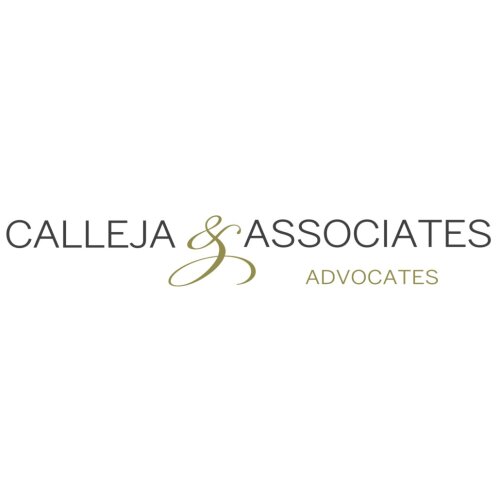Best Conveyancing Lawyers in Malta
Share your needs with us, get contacted by law firms.
Free. Takes 2 min.
Free Guide to Hiring a Real Estate Lawyer
Or refine your search by selecting a city:
List of the best lawyers in Malta
About Conveyancing Law in Malta
Conveyancing in Malta refers to the legal process of transferring property ownership from one person to another. This usually involves houses, apartments, land, or commercial premises. The process is formal, detailed, and regulated by Maltese law to ensure clarity, security, and transparency in property transactions. Conveyancing services are typically handled by notaries, who play a central role in preparing documents, performing property searches, and ensuring that both parties fulfill their legal obligations.
Why You May Need a Lawyer
Engaging a lawyer or notary in Malta for conveyancing is recommended to protect your interests and ensure that the transaction complies with legal requirements. Common situations where professional legal help is necessary include:
- Purchasing or selling a residential or commercial property
- Transferring property between family members or through inheritance
- Dealing with complex property issues such as encumbrances, easements, or disputed ownership
- Financing a property purchase, including handling bank loans and mortgages
- Reviewing and drafting preliminary agreements and contracts
- Conducting thorough title searches to avoid potential legal problems
- Resolving disputes related to property boundaries or obligations
A lawyer will safeguard your interests, help you understand your rights and responsibilities, and handle legal documents and submissions.
Local Laws Overview
The conveyancing process in Malta is governed by several key pieces of legislation and established practices. Some essential aspects include:
- The process usually starts with a preliminary agreement, also known as a promise of sale (konvenju), signed in front of a notary.
- The notary is responsible for carrying out property searches, including verifying title, checking for debts or hypothecs (loans secured by property), and confirming planning permits.
- Both parties must abide by timeframes set out in the promise of sale, usually up to three months before the final contract is signed.
- Applicable taxes, mainly stamp duty and capital gains tax, must be settled before the transaction concludes.
- Foreigners have some restrictions when purchasing property in Malta, and may require an Acquisition of Immovable Property (AIP) permit unless special rules apply.
- Transfer of property is only considered legal once the final contract is signed and registered with the Public Registry.
- All transactions must comply with anti-money laundering regulations.
Frequently Asked Questions
What role does a notary play in Maltese conveyancing?
A notary acts as an impartial adviser to both buyer and seller, prepares the necessary documentation, performs property searches, and ensures the transaction is valid under Maltese law.
What is the promise of sale (konvenju)?
The promise of sale is a binding preliminary agreement between buyer and seller, outlining the terms and conditions of the sale and setting a period for the final contract to be signed.
How long does a typical conveyancing process take in Malta?
The process usually takes between two to four months, depending on the complexity of the transaction and any necessary searches or clearances.
What taxes and fees are payable when buying property?
The main costs include notary fees, stamp duty (typically 5 percent of the purchase price), registration fees, and if applicable, property valuation fees and AIP permit fees for non-residents.
Can foreigners buy property in Malta?
Yes, but non-residents usually need an Acquisition of Immovable Property (AIP) permit, with some exceptions for properties in Special Designated Areas or EU nationals purchasing as their primary residence.
What due diligence is involved in Maltese property transactions?
Due diligence involves verifying legal title, ownership, any outstanding debts or liens, planning permits compliance, and confirming the absence of any legal encumbrances.
What happens if a party fails to honor the promise of sale?
If either party fails to honor the agreement without legal justification, they may be liable to pay a penalty as outlined in the konvenju.
Are there risks associated with buying property without a notary?
Yes. Legal and financial risks include undiscovered debts on the property, invalid ownership transfers, tax issues, and possible litigation.
When is payment for the property usually made?
A deposit (usually 10 percent) is paid upon signing the promise of sale. The balance is paid at the signing of the final contract, along with applicable taxes and fees.
Is property inheritance subject to conveyancing procedures?
Yes, inherited property must still go through formal transfer procedures, including legal verification, tax, and registration requirements.
Additional Resources
For further information and assistance with conveyancing in Malta, consider consulting the following bodies and resources:
- The Notarial Council of Malta - The official body regulating notaries in Malta
- The Public Registry - Responsible for the registration of property transfers and title searches
- The Inland Revenue Department - Handles property-related taxation, including stamp duty and capital gains tax
- The Planning Authority - For questions about development permits and property compliance
- Maltese legal and notarial practices specializing in property conveyancing
Next Steps
If you need legal assistance with conveyancing in Malta, it is advisable to:
- Identify and contact a qualified notary or lawyer experienced in Maltese property law.
- Prepare all relevant documentation, including identification, proof of funds, and details of the property in question.
- Arrange an initial consultation to discuss your needs and receive professional advice tailored to your situation.
- Understand the fees and timeframes involved before proceeding with any commitments.
- Monitor the progress of your conveyancing transaction and maintain regular communication with your legal adviser until completion.
By following these steps and seeking appropriate legal guidance, you can ensure a smooth and secure property transaction in Malta.
Lawzana helps you find the best lawyers and law firms in Malta through a curated and pre-screened list of qualified legal professionals. Our platform offers rankings and detailed profiles of attorneys and law firms, allowing you to compare based on practice areas, including Conveyancing, experience, and client feedback.
Each profile includes a description of the firm's areas of practice, client reviews, team members and partners, year of establishment, spoken languages, office locations, contact information, social media presence, and any published articles or resources. Most firms on our platform speak English and are experienced in both local and international legal matters.
Get a quote from top-rated law firms in Malta — quickly, securely, and without unnecessary hassle.
Disclaimer:
The information provided on this page is for general informational purposes only and does not constitute legal advice. While we strive to ensure the accuracy and relevance of the content, legal information may change over time, and interpretations of the law can vary. You should always consult with a qualified legal professional for advice specific to your situation.
We disclaim all liability for actions taken or not taken based on the content of this page. If you believe any information is incorrect or outdated, please contact us, and we will review and update it where appropriate.
Browse conveyancing law firms by city in Malta
Refine your search by selecting a city.

















